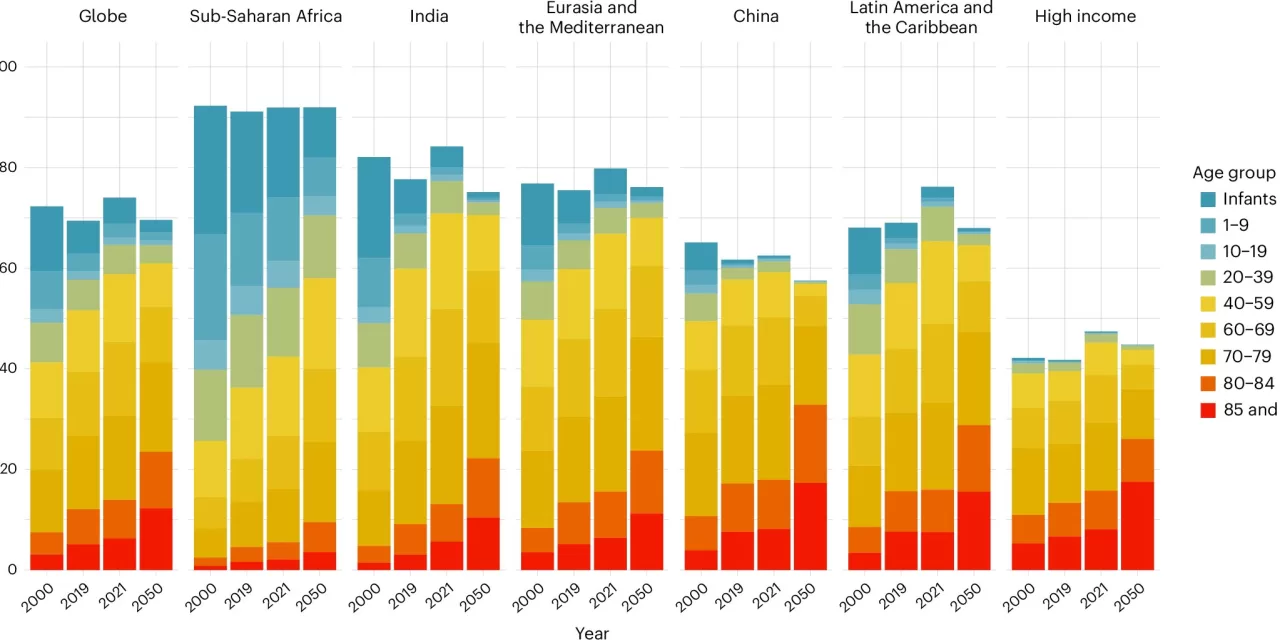Two groundbreaking studies published in Nature Medicine have revealed the enormous economic toll of avoidable deaths, emphasizing the potential financial benefits of investing in health care improvements worldwide. The global research team, including Diego S. Cardoso, an assistant professor at the University of Illinois Urbana-Champaign, provides fresh insights into how preventing unnecessary deaths could significantly boost global economic growth.
The first study focuses on the year 2019, during which an estimated 40 million deaths were deemed avoidable. These deaths could have been prevented or delayed if individuals worldwide had access to the best available health care, according to Cardoso. The findings underline how disparities in access to health services can have dire consequences, not only for individuals but also for economies.
“The economic value of reducing these avoidable deaths is equivalent to 23% of annual global income,” Cardoso explained. “This suggests that significant health improvements could lead to substantial economic benefits, providing a compelling case for policymakers to invest more in health promotion and health care.”
By applying novel methods to quantify the impact, the study underscores the untapped potential for economic gains that could result from strengthening health care systems. Reducing avoidable mortality doesn’t just save lives—it can act as a powerful catalyst for economic development.
The second paper extends these findings by focusing specifically on deaths resulting from noncommunicable diseases (NCDs) and injuries, such as cardiovascular diseases, diabetes, cancer, and road accidents. The study provides a framework for policymakers to compare the economic benefits of reducing mortality in different sectors, encouraging strategic health interventions based on the financial return on investment.
“Quantifying the economic value of reducing mortality from NCDs and injuries shows that regions and causes of death can have significantly different financial benefits,” said Cardoso. “This approach helps prioritize interventions where they will make the most impact, driving improvements in public health while also fostering economic growth.”
Taken together, the studies make a compelling case for more robust health investments, especially in preventing avoidable deaths. They highlight the need for global collaboration and targeted health interventions that address both communicable and noncommunicable diseases, as well as injuries, to maximize economic and social benefits.
A Path Forward for Policymakers
These studies could reshape how governments and international organizations approach health care spending. Instead of seeing health care merely as a cost, these findings frame it as an investment with significant potential returns in terms of economic productivity.
Reducing avoidable deaths can free up resources, reduce strain on families and healthcare systems, and boost the productivity of nations by keeping individuals healthy and active in the workforce. With the potential economic value of reducing avoidable deaths standing at nearly a quarter of global income, this research highlights that health is not just a social good but also a financial imperative.
Conclusion
As policymakers worldwide face the challenge of addressing rising health care costs and widening health disparities, these new studies provide essential data for making informed decisions. Reducing avoidable deaths from preventable causes, whether through better health care access or targeted interventions for noncommunicable diseases, can bring about both improved quality of life and stronger economic performance globally.
With the global health landscape still reeling from the effects of the COVID-19 pandemic, these findings could serve as a roadmap for building more resilient health care systems and boosting global economic recovery.
More Information:
- Angela Y. Chang et al., “The economic value of reducing avoidable mortality,” Nature Medicine (2024). DOI: 10.1038/s41591-024-03253-7
- Stéphane Verguet et al., “The economic value of reducing mortality due to noncommunicable diseases and injuries,” Nature Medicine (2024). DOI: 10.1038/s41591-024-03248-4












